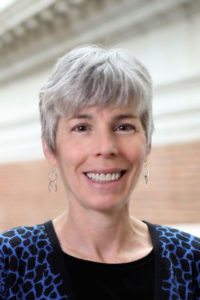
K-12 teachers across the country will have the opportunity to take a professional development course from Vanderbilt University faculty in 2014 via the university’s partnership with leading massive online open course provider Coursera.
“Teacher professional development is one of the thorniest challenges in PreK-12 education. Teaching suffers because teachers lack the necessary networks of professional support as well as access to new knowledge based on research,” Camilla Benbow, Patricia and Rodes Hart Dean of Education and Human Development, said. “The partnership with Coursera will enable teachers to learn from scholars at leading education schools and to support each other better in strengthening their teaching skills. We are very excited about the possibilities Coursera holds for innovation and improvement in our nation’s schools.”
In addition to Vanderbilt, six other schools of education will offer free teacher professional development courses through Coursera as part of the new effort. They are the College of Education, University of Washington; Curry School of Education, University of Virginia; Johns Hopkins University School of Education; Match Education’s Sposato School of Education; Relay Graduate School of Education; and University of California, Irvine Extension.
Also joining Coursera’s network of partners are educational institutions including American Museum of Natural History, Commonwealth Education Trust, Exploratorium, Museum of Modern Art and New Teacher Center.
Similar to university courses currently offered through Coursera, these new courses will feature video lectures, peer forums, supplemental materials such as free Web content and e-textbooks, and other interactive components to support meaningful educational experiences.
The Vanderbilt course, “Student Thinking at the Core,” will be led by Marcy Singer-Gabella and Barbara Stengel, professors in the practice of education in the Department of Teaching and Learning. The four-week course will be offered beginning January 2014. Registration and course materials are free. Anyone can take the course, but it is especially geared for teachers who are already in the classroom and can apply what they learn as they are learning it.
The course will explore how teachers can capitalize on what students bring to the classroom – their ideas, perceptions, and misunderstandings – to advance the learning of all students in the class.